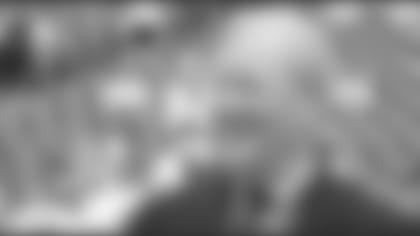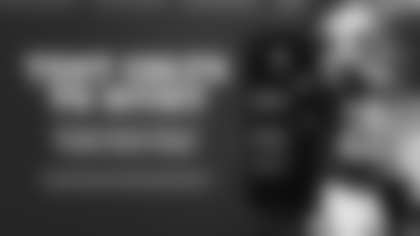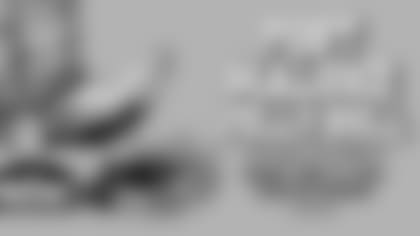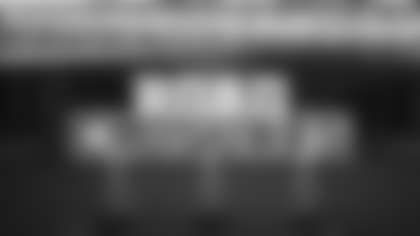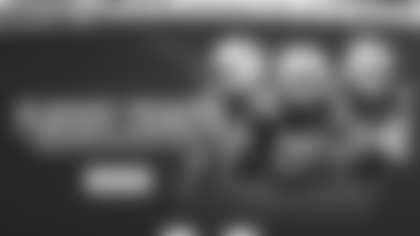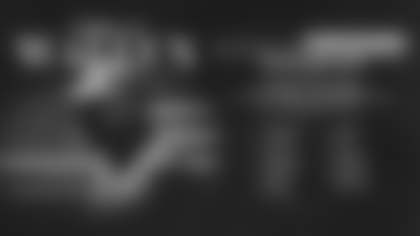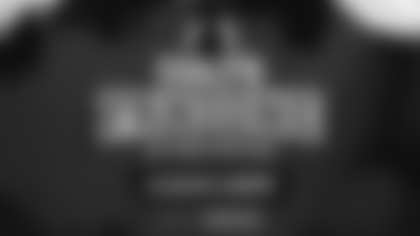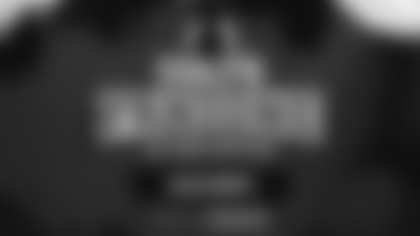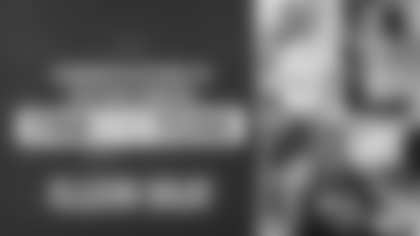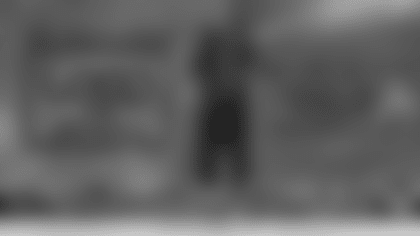Bill Polian, in his 13th season as Colts president, has a resume
unique in the NFL. The only man to win NFL Executive of the Year
six times, Polian in the 1980s built the Buffalo Bills into a
four-time Super Bowl participant. In the mid-1990s, he built the
expansion Carolina Panthers into a team that made the NFC
Championship Game in its second season, 1996. Since joining
Indianapolis in 1998, he built the Colts from a 3-13 team in 1997
and 1998 into one that has made the playoffs 10 of the last 11
seasons, including AFC Championship Game appearances after the
2003, 2006 and 2009 seasons, AFC South titles in 2003, 2004, 2005,
2006, 2007 and 2009, Super Bowl appearances following the 2006 and
2009 seasons and a Super Bowl championship following the 2006
season. Each week during the season, in The Polian Corner, Polian
and Colts.com will discuss issues pertinent to the Colts and the
rest of the NFL.
Q: A 27-13 victory over the Denver Broncos Sunday. The Broncos had more than 500 yards offense, but the Colts limited them to six points on five red-zone opportunities.
A: That's correct. There are only two statistics that count on defense, and that's points and turnovers. We won the battle in both of them. (Give) great credit to our defense for playing really, really hard (and) denying (them) touchdowns in five cases. They had fourth-and-goal twice and turned them away. The run (by Broncos running back Laurence Maroney) that was overturned on replay – that was a phenomenal play by everybody involved. Robert Mathis, Philip Wheeler, Gary Brackett – they did a heck of a job. It was a grinder game, as you always would expect. I talked with (former Colts Head Coach) Tony Dungy Sunday morning. He said, 'How does it look?' I said, 'It's always a grinder game out here. Something always happens.' He said, 'Yeah, you're right. We always find a way.' It ends up being a wild and woolly game most times, and somehow or another we found a way to win out there. It's a tough place to play. The combination of the heat and the altitude was about as bad a combination as you can get. It got to us a bit in the middle part of the fourth quarter on defense, but then great credit to our guys: they rallied at the end and really did a great job over the last half quarter of the game. It was a gutty performance, a winning performance. Style points? Who cares? It's about winning, and we got it. Get on the plane and go home.
Q: Talk through the challenge of the Maroney non-touchdown. Every Colts player involved said he knew instantly Maroney didn't get in . . .
A: If you look at the tape, you can see Robert jump up off the ground and he's making the signal they use when players want a penalty: 'throw the flag.' He's hollering at (Colts Head Coach) Jim (Caldwell) to throw the challenge flag. The players on the field felt he did not make it, that he was down before he reached out and put the ball over the goal line. When you saw the replay, it was obvious that the knee was down and that he reached. There was no question we would challenge it, and very little question in my mind that we'd win the challenge. Since it was fourth down, it took them a little more time to talk through that because they wanted to make sure they knew where the ball was on the change of possession. But it was pretty obvious on the replay that he did not make it. That's one of the situations where that rule is a good rule. I happened to be at the Notre Dame-Stanford game on Saturday, and there's absolutely no question in my mind that the challenge rule we have is far, far better than the way the college rule functions. It (the college rule) breaks up the flow of the game. Fans didn't like it when it was in our game that way. Coaches didn't like it. Certainly, administrators didn't like it. Replay would never have resurfaced in the National Football League had we not put in this challenge system, which has turned out in my mind to be the best system of any in sports.
Q: There was an interference call on which the flag was picked up. There was never an explanation. Did you get one?
A: We did not get an explanation and truthfully, we didn't question it on the report Monday because when you looked at the tape and the television replay, the ball hit the defender in the back. He was not looking back for the ball, but he was attempting to make a play. I have no reason to question it. I think what happened was one official came over and said, 'Did you know the ball hit him in the back?' He probably didn't. He was looking at the two players making contact. I thought it was pretty cut-and-dry when they picked the flag up just looking at the television replay.
Q: Denver did a lot of things quarterback Peyton Manning said he hadn't seen. He adjusted quickly, but that's a tough defense. Also, the Colts' defense played 76 plays. That has to take a toll.
A: You don't want to play that many plays. You can go 60-to-65 plays in that altitude if you're in good condition and be fine as we have in the past. They did a really good job defensively disguising their coverage, their concept of coverage – basically taking away (tight end) Dallas (Clark) and then one other receiver on virtually every play. They played a two down-linemen defense, which essentially amounted to a four-man rush, the vast majority of the game. On run action, they entered the backside linebacker almost all the time, which makes for difficulty in terms of blocking and pickups. It was a well-conceived plan. They executed it well. Fortunately, we were able to make plays that counted to win the game.
Q: Once again, it came down to every player on the 53-man roster. Rookie free-agent wide receiver Blair White came up big . . .
A: That's the prime example of why you have a practice squad. You bring in a player who may not be quite ready, or in our case, because of injuries on the offensive line we were forced to go heavy on the offensive line on the 53-man roster to open the season. Otherwise, Blair would have made the team. Of course, when you have injuries, you've got to step up and perform, and he did. (Wide receiver) Austin Collie performed as well in the absence of Anthony Gonzalez and Pierre (Garcon). It was a terrific performance. I feel good for Blair because I know he was hurt when he was cut from the team at the start of the season. I told him at that point, 'You'll be back. Don't worry about it. Keep working. Keep plugging.' He did and he got rewarded, and that's nice to see.
Q: George Blanda, a Pro Football Hall of Fame selection, died at 83 Monday. Any thoughts . . .
A: A very nice man. I got a chance to meet him on a couple of occasions – a very humble man. He played 26 years in the league – absolutely unbelievable. He was one of the first big stars of the American Football League in 1960. He played both quarterback and placekicker for the Oakland Raiders and the Houston Oilers. He was a very, very good quarterback. Most people remember him as a placekicker, but he actually was the second quarterback for most of his career, and he was a very good quarterback. He played at the University of Kentucky under Bear Bryant. That's how far back it went. But he was a very nice man and an incredible player. To play for 26 years in this league, that's unheard of. He was a straight-on kicker who held the NFL scoring record for a long, long time. Think about what kind of an athlete it takes to be a quarterback and a straight-on kicker at the pro level. I don't know what his golf handicap was, but I guarantee you it was good.
Q: Can you discuss how you found a player such as Blair White?
A: We felt he was a good player at Michigan State. He actually performed quite well at the (NFL Scouting) Combine, with numbers better than we thought he would put up in terms of running. His background is such – a walk-on, an academic All-American. Those are the kinds of players we really covet, because we know that they will always be ready when called upon. They might not be the greatest talent in the National Football League, but when they have all the kinds of intangibles that Blair has, you know you can count on them when the chips are down. That's exactly what happened Sunday.
Q: Can you update the status of safety Bob Sanders?
A: He's progressing. He has had surgery on the biceps tendon. It was performed by Dr. James Andrews down in Birmingham, Ala. I believe he's due for a recheck by Dr. Andrews very shortly. We felt like when the injury occurred that it would probably be four to five, maybe six weeks before we had a full handle on what his recovery time might be. We haven't reached that point yet, so I don't have any update at this point. Our hope is everything will go smoothly and that he might be back before the end of the season.
Q: Can you update the status of wide receivers Pierre Garcon and Anthony Gonzalez?
A: I doubt that Anthony would be ready this weekend. I think it's probably a little ways away, although he is progressing. Pierre is a wait and see. I think we'll have to take a look at that as the week progresses, maybe even up through Friday or Saturday. I would presume that Blair would stay up (on the roster). I absolutely think he would. We really felt like he would have made the team anyway at the cut to 53, but for the injury status on the offensive line that required us to carry extra offensive linemen. I think he'll be up, and you'll see more of him.
Q: It looked as if five-time Pro Bowl defensive end Dwight Freeney was held quite a bit Sunday. . . .
A: What the Broncos did was perfectly legal. They double-teamed both of our ends on virtually every play. There were a couple of occasions where they had three guys on Dwight, and that's perfectly legal. There's nothing that says you can't do that. They did it well within the rules. I can't recall any holding penalty we thought went uncalled. We just have to find a way to get more pressure from our inside people when they're in a position where they're double-teaming or triple-teaming Dwight or Robert. We did, by the way, with a couple of blitzes that were good change-ups. The other thing you have to do when they're only releasing two receivers and keeping eight guys in to block you have to make sure they're covering up those receivers. We had some mistakes there that allowed big plays that shouldn't have happened. We've got to clean that up, but what they did was a good plan and it worked. More power to them.
Q: Would you expect Jacksonville and subsequent opponents to try similar things?
A: On the defensive side, you're going to find out early what someone plans to do. There are different approaches to playing us. There's one approach that says, 'Control the ball by running it and keep the Colts' offense off the field. Then, when you have them on the field, play coverage most of the time and make us go the long way. Don't give us any big plays. Then, mix in an occasional blitz where you hope you'll knock the quarterback down.' We've seen that a lot. Denver's approach was, 'Play coverage, which they did almost universally.' They mixed up the coverages zone/man. There were many, many times where they doubled two receivers, and they played with dime most of the time and dared us to run it. They did a really, really good job of stuffing the run. We didn't do as good a job as we could have at running it, but give them credit for having a good plan to negate our running game even with the dime defense. Offensively, what they said was, 'We're going to try to create big plays by trying to disguise our passing game. We're going to max protect whenever we can, and we're going to do everything off play action.' They did a great job with it. Our approach was, 'Let's keep everything in front of us. Let's not give up the big play.' We gave up the one big play, which was really totally our fault – not enough rush and clearly not enough coverage. You shouldn't get beat down the middle in Cover 3, which was what we were in, on a deep throw like that. We have to clean that up. Now, there are other teams that say, 'We're coming out blitzing' – the Jets, for example. They say, 'We're coming after you. We'll knock the quarterback down and over the course of the game, we'll knock him down enough and by the fourth quarter, he'll be gun shy.' That hasn't worked a lot against us, but people try it. I think it just depends on the personality of the team you're playing. Jacksonville, since (Head Coach) Jack Del Rio has been there, has had great success running the football and I would expect they're going to do that. Because they've switched to a 3-4, how they play us defensively remains to be seen. I don't have any real feel for that, because I haven't seen enough of them, but I guarantee you they're going to run the ball – that much I know.
Q: Talk about the (Colts wide receiver) Reggie Wayne-(Broncos cornerback) Champ Bailey match-up Sunday . . .
A: It was a draw – and two great players, no question. Champ, with all due respect to some of the new people, has been the guy year in and year out. Quietly, respectfully, with dignity, Champ has been the best corner in the league. He doesn't make noise. He doesn't blow his own horn. He doesn't talk about himself. He comports himself as a professional on and off the field. For my money, nobody's close to him as a corner since he has been in the league. He proved that again Sunday – probably on a bad leg as well. Reggie won his share. That's what makes them both great players, but I take my hat off to Champ Bailey. He's a worthy opponent, and he's someone who has made the game better by his presence.
Q: What did Denver do to shut down the Colts' pass defense?
A: The first thing they did was a lot of play-action passing or bootlegs. We didn't really shut that down until the fourth quarter. We had two plays in the fourth quarter, two incompletions. One probably should have been intentional grounding. That was an adjustment we made to make sure we attacked (Broncos quarterback Kyle) Orton once he booted. We had not done that earlier. They were getting a lot of one-man coverage and just hitting out patterns off the bootleg. The other thing they did was protect with eight. When you do that, you really should make some plays on the back end. There were times we did not do that, although we played to keep everything in front of us and we did a wonderful job of that. Yards are completely misleading. They mean nothing. We did not allow big plays, save for the one where they were max protecting so we couldn't get anybody home rushing four. We had plenty of coverage. We just dropped the coverage in the middle of the field and they completed a long pass. That was just a coverage error. There are times people are going to block with seven or eight and nine on occasion, as they did. They'll keep your rush out of there in case you blitz, but with us the bottom line is you have to make them complete the ball in front of you, then make the tackle. If you do that, the odds are pretty good you'll be OK in the ballgame, as was the case with us. We did do a great job in the red zone, but you do have to tackle well and you have to rally to the ball, which by and large we did.
Q: Some people asked, 'Why not blitz more?'
A: If you blitz a lot, you're going to give up a lot of long plays. Our DNA here, as I said to Jim Caldwell earlier this year, consists of making people go the long way. We say, 'We'll give you some completions in front of us. We'll tackle you. At some point in time, our rush will get to you. At some point in time, we'll cause a fumble. At some point in time, you'll make a mistake. At some point in time in the red zone when things are clogged up, you won't be as successful.' That is our way of doing things. That's the way we play. We've mixed in very successfully some blitzes over the last two years and we're going to continue to do that, but we are not the New York Jets. We do not get off the bus blitzing. It's not our style. They do it and they do it well, but it's not our style. It's not how we're constructed.
Q: What's your advice for someone who wants to get into coaching?
A: The best answer I can give you is to try to get in at the lowest level you can. If you can sign on with a high school as an assistant and learn how to coach, actually coach on the field, coach players, that is the best way to learn and grow as a coach. I had great advice from a great man who was one of my mentors very early in my career. He said, 'If you're in coaching, you should be the best position coach you can be. You should be the best technique coach you can be. You'll always have a job.' He was absolutely right. Get out there and actually coach players on technique. Coach them on developing themselves within a position. Coach a position group. That would give you the best training you can get. Try to be the best guy you can be in that situation and if you are, people will notice you and you'll move up the ladder. That's not me talking. That's Marv Levy, who's a Hall of Fame coach. That was his advice to everyone who asked him how to become a coach in the National Football League. He'd say, 'Be the best coach you can be wherever you are and someone will notice. That's absolutely true.
Q: Considering how good running back Joseph Addai is in the red zone, any thoughts of starting Donald Brown and letting Addai play closer to the goal line?
A: You're quite correct that Joseph is very good in the red zone. He's been real productive in that role. Joe has been the starter. They rotate in and out basically based on numbers of plays and/or physical condition. Once one of them gets tired, he comes out of the ballgame and the other comes in. We try as much as possible to get Joe in in the red zone, but sometimes you can't because we're either going no-huddle or we're in a situation where he might be winded. Donald does an equally good job. They're both good backs, and we feel like we're in pretty good shape with both of those two guys.
Q: It seems like the Colts play very little man-to-man coverage. Why is that?
A: Actually, we play more man-to-man now than we did when Tony was here. We were almost exclusively a zone team then. We play a lot more man-to-man now. When we're playing man-to-man, when we're in press technique or trail technique, we're very close to the receivers. When we're playing zone, we're backed off. We give them a little cushion and try to close to the ball. What happened Sunday was we were in a lot of zone and in some cases, we were in man when they were using that play action pass. That being the case, we probably could have been a lot tighter with our techniques in those situations. That's something that can get cleaned up. But we do play a lot more multiple coverage than we did when Tony was here. By and large, we've done it well.
Q: How close is the NFL to shifting to an 18-game season? And how would the Colts adjust from an evaluation standpoint?
A: First of all, I think the 18-game season is a fait accompli. The owners and principally, the Commissioner (Roger Goodell), have decided it's the way to go. So, the debate such as it was, is over. I've heard recently some really interesting commentary on it, and I'm sorry this didn't get more coverage earlier, and the one that was most on target was Howie Long Sunday on the pre-game show talking about the numbers of players on injured reserve, how it would affect players over the course of a season, how it would affect (them) over the course of a career, how it would affect the game – very thoughtful, very well put together by a guy who obviously has Hall of Fame credentials. As I said, I wish some of that dialogue had taken place earlier.
Q: How would an 18-game season hurt the Colts' ability to evaluate lesser-known young players?
A: We're still in the process of working through how we're going to handle that. Tony was absolutely right: Melvin Bullitt, Gary Brackett and you can go on and on; Blair White, keep naming them. Those collegiate free agents that we sign after the draft and who come in and make our team and become great contributors over time, get playing time and experience and evaluation time in front of the coaches during the preseason. We will be losing not two, but probably three evaluative experiences because most people feel that in a two-game preseason you're going to have to play the regulars a half and a half. That's going to take a full game from the rookies who are trying to make the team. So, how do you deal with that? You have to set up evaluative experiences for them in other venues. I'm hoping we can get enough camp time to be able to go against the Bears, let's say, or go against the Bengals in a controlled situation – perhaps the Rams, people nearby – so that we could get evaluation and experience for these fellows. Absent that, I think you're going to see lots of joint practices leading up to these preseason games such as New England and New Orleans did to begin the season this year. The short answer is it's a fait accompli, I'm afraid, and we're going to have to find ways to get those evaluative experiences. We're not going to sit back and say, 'Uh-oh, 18 games . . . we're now going to become a veteran team.' That's not going to work. That's not the way we want to play.
Q: With Jacksonville, you say, 'Running back Maurice Jones-Drew,' but the team is more than that . . .
A: (Laughing) That's enough. The only thing that would be worse would be Fred Taylor teaming up with him. He has been a thorn in our side for as long as he has been in the league. He has been a great player, a great back. Jack Del Rio is an old school, meat and potatoes football coach. He doesn't like the way his team has performed to date. I'm sure he's going to go back to basics with them and we'll see a steady dose of Jones-Drew and Co. We know what (quarterback) David Garrard is. He always gives us trouble. He's a mobile quarterback who can make plays outside the pocket. I think their defense, while it's a work in progress, has good players and is getting better. Anytime you have a division rival like this, it's always a hard-fought, hard-bitten game. It doesn't matter what the records are. They know each other very well, and it's always a tough game. That's what we expect. It's going to be a sellout, obviously. It always is when we go there. They will be fired up, and that's the way it should be.



